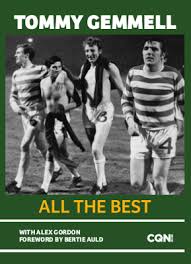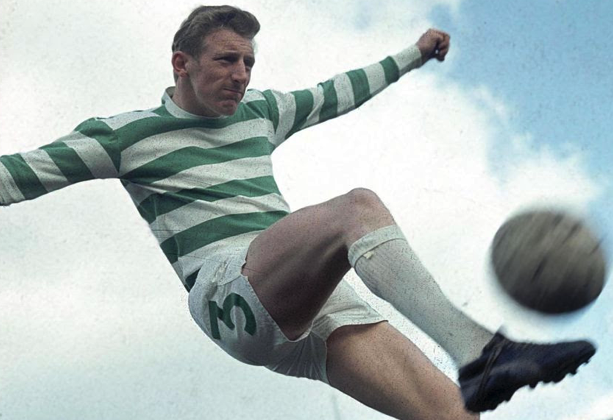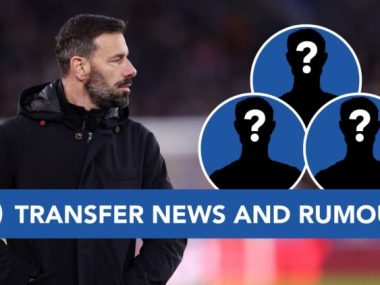The End of an Era: Tommy Gemmell’s Departure from Celtic to Nottingham Forest
Tommy Gemmell’s name is etched into Celtic folklore, a symbol of the club’s greatest triumph. His thundering equaliser against Inter Milan in the historic 2-1 European Cup final victory on May 25, 1967, will forever be remembered as one of the defining moments of Celtic’s Lisbon Lions legacy. Yet for all his achievements, his exit from Paradise in 1971 was abrupt and, to Gemmell, unnecessary.

The full-back’s career with Celtic was illustrious. Across 418 appearances, he found the net 64 times, an extraordinary tally for a defender, with 34 of those goals coming from the penalty spot. Under Jock Stein’s management, Gemmell was a cornerstone of the side that dominated Scottish football throughout the 1960s. But, as he would later recount, his departure was one he hadn’t foreseen nor desired.
Reflecting on those days in his autobiography All The Best, published by CQN Books in 2014, Gemmell spoke candidly about his departure and the whirlwind move to Nottingham Forest.
“I Didn’t Want to Leave Celtic”
“It’s been well documented down through the years – I didn’t want to leave Celtic,” Gemmell recalled. “I was only 28 years old when Big Jock let me know it was time for me to go. I still had an awful lot to prove, if not to anyone else, then to myself.”
By the start of the 1971/72 season, it became clear Gemmell no longer fit into Stein’s plans. Despite making just three league appearances that term, in which Celtic won all three matches comfortably – 9-1 against Clyde, 1-0 against Hibs, and 3-1 over Dundee – he found himself on the fringes.
“I was perfectly fit,” he explained. “When I wasn’t in the team, fans would ask me if I was injured. ‘Nope, I’m rarin’ to go,’ I’d tell them. They would look mystified.”

In his mind, the replacements Stein selected were not up to standard. “I’m not being big-headed here, but Jock was replacing me with players who, in my opinion, weren’t fit to lace my boots. There’s no point in naming names now, but I knew they weren’t offering the team what I could.”
The final blow came on a Wednesday afternoon when Gemmell received a phone call from Stein. “We’ve received an offer from Nottingham Forest for you,” the manager said. It wasn’t phrased as a question or a negotiation. Forest had bid £40,000, and Stein made it clear Celtic would accept the offer.
“Naturally, this was all new to me,” Gemmell admitted. “Despite asking for a transfer when I was dropped from the League Cup Final team in 1969, I never thought I would actually leave.”
A Whirlwind Farewell
That evening, Gemmell honoured a pre-existing commitment to judge a talent contest at a Chapelhall show bar owned by his former Rangers rival Willie Henderson and ex-manager Davie White. As the night ended, veteran journalist Jim Rodger of the Daily Express was waiting outside.
Rodger, affectionately nicknamed “Scoop,” was famed for his eccentricities and insider knowledge. “Son, are you going to a club in England?” he asked, a twinkle in his eye. “Who told you?” Gemmell responded, though he knew the answer – likely Big Jock himself.
“Scoop knew the story,” Gemmell said. “I told him I was talking to Nottingham Forest. That night, I picked up the first editions of the Daily Express and Daily Record, and there it was: ‘CELTIC SHOCK! GEMMELL IN TALKS WITH FOREST.’ Aye, Scoop liked his little games.”
The following day, Gemmell travelled to the City Ground in Nottingham to meet Forest’s Scottish manager, Matt Gillies. “It was nice to feel wanted again,” he admitted. “Gillies was eager to sign me, and I was determined to get the best deal possible. I wasn’t going to sell myself short.”
After a few rounds of negotiation, a three-year deal was agreed. Gemmell’s wage skyrocketed from £60 to £180 a week – a staggering increase. “I was leaving the top club in Scotland, one of Europe’s biggest, for a side struggling in England’s First Division. And I was getting three times my money. Go figure.”
The speed of the move left him somewhat disoriented. “I left the City Ground just before midnight, spent the night at the Trent Bridge Hotel, and did light training with my new teammates on Friday morning. On Saturday, I joined them on the coach to Bramall Lane to watch us play Sheffield United.”
A New Beginning – and a Strange Farewell
On that bus ride to Sheffield, Gemmell realised how much his world had changed. “There was no Bertie Auld, no Jimmy Johnstone, no Billy McNeill. Just faces I didn’t know.” Yet two unfamiliar youngsters caught his eye. “There were two kids at the back of the bus – Martin O’Neill and John Robertson. I would get to know them better much later in life.”
Registered as a Nottingham Forest player, Gemmell returned to Celtic Park one final time to tie up loose ends. “Big Jock wanted to see me,” he recounted. Stein, uncharacteristically reflective, seemed troubled by Gemmell’s departure.
“Good luck with Nottingham Forest, Tommy,” Stein said. “I hope you do well. I’m sure you will.”
Then, after a pause, Stein added, “You know, it didn’t need to come to this.”
Gemmell was taken aback. “Before I could say anything, he waved his big left paw and said, ‘Ach, on you go. Good luck.’”
It was a brief, enigmatic farewell – one that left Gemmell wondering what Stein truly felt about his exit. “He never showed personal emotions in front of players, but I sensed there was a change in his demeanour.”
Gemmell shook Stein’s hand and left the office. “I never returned,” he said simply.
The End of a Celtic Legend’s Era
Tommy Gemmell’s departure marked the end of an era for Celtic. A key figure in Jock Stein’s all-conquering side, he had been part of a generation that transformed the club into European champions and domestic dominators.
For Gemmell, the move to Nottingham Forest was a bittersweet new beginning. The Celtic dressing room that had been his home – a room filled with characters like Jimmy Johnstone and Billy McNeill – was replaced by unfamiliar faces at a struggling English side. Yet the move brought financial rewards and a sense of being valued again, something he no longer felt in Glasgow.
Gemmell’s relationship with Stein remained complex. The manager’s final words suggested regret, but his actions were clear – Gemmell no longer had a place at Celtic. For a player who had delivered so much for the club, it was a tough pill to swallow.
In the years that followed, Tommy Gemmell’s name would be spoken with reverence by Celtic supporters, a reminder of glory days and legendary nights. His thunderous strike in Lisbon remains iconic, but his unceremonious exit is a poignant footnote to his remarkable career.
Gemmell would continue to make his mark in football, but he never forgot that moment when his Celtic journey came to an end. For all his pride in wearing the green and white, the farewell came far too soon.





